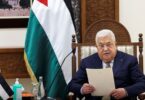Iqbal Khan
Prime Minister Imran Khan’s visit to Iran was overdue; this was his first visit since assuming office in August 2018. Core purpose of the visit was to fortify Pak-Iran relations. Talks helped ease tensions as the two countries agreed on a raft of measures to deal with the problem of terrorism that has affected both sides in recent months. Even though summit has touched all contentious issues, concrete outcome would depend on how both sides implement the agreed upon understandings on the ‘way forward’.
Imran Khan made it clear that Pakistan would not allow its territory to be used against any neighbour including Iran. His bold statement created some controversy back home with certain people questioning the wisdom behind publicly admitting the presence of anti-Iran groups in Pakistan. In the past, “some terrorists did some attacks,” Rouhani said vowing not to allow ‘third party’ to undermine ties between the two countries.
Economic activity is accelerating in the region due to CPEC project. Gwadar port is emerging as the biggest port in entire region. Iran being the neighbour has a lot to gain from evolving economic opportunities. Besides CPEC, other major project is Iran-Pakistan pipe line; both projects are mutually complementary. Both sides welcomed the implementation of bilateral and multilateral agreements including the Belt and Road Initiative (BRI) and China-Pakistan Economic Corridor (CPEC), as well as agreements on establishing the North–South and East–West corridors in Iran.
While emphasizing historical, cultural, religious and civilizational ties between the two countries. Both sides underscored that common borders should be the borders of peace and friendship. Pakistani side extended its appreciation to the government of Iran for continuing electricity exports to Pakistan’s Balochistan Province. Prime Minister reaffirmed the support and solidarity of the government and people of Pakistan with the people of Iran over loss of precious human lives and material damages due to recent severe floods in Iran. Iranian side expressed its gratitude to Pakistan for sending humanitarian assistance to the flood affected people in Iran. The two sides underscored to devise all required mechanisms for boosting monetary, financial and commercial activities.
Referring to the necessity of establishing a safe, stable and independent Afghanistan for the sake of regional peace and stability, summit acknowledged the necessity of holding Afghan-led and Afghan-owned peace dialogue while calling upon regional countries and the international community to work collectively to end conflict and restore complete peace in the country.
Both sides highlighted the need to resolve the issue of Jammu & Kashmir through dialogue and peaceful means based on the will of the people and in line with the resolutions of the United Nations Security Council. Leaders also emphasized that the right of the people of Palestine to establish an independent and sovereign Palestinian state should be respected as the key demand of the Muslim states.
Both sides stressed on swift and complete implementation of the Joint Comprehensive Plan of Action (JCPOA) by other states affirming full compliance of Iran to its provisions. Pakistan has always maintained its principled stance that JCOPA is a UN approved international treaty and all parties to the treaty must fulfil their treaty obligations.
Growing relations of Iran with India have many a times raised eye bows in Pakistan, but in all probability, relations between the two countries have never been and will never evolve into an anti-Pakistan nexus.
Iran also needs to understand that there is increasing awareness about persistent Iranian involvement, alongside Saudi Arabia, in fanning and sustaining sectarian tensions in Pakistan. Indeed Pakistan has become, yet another playfield for Saudi-Iran struggle for propping up their respective version of Islam.
There has been regular exchange of leadership level visits between the two sides in recent years.
These visits have strengthened the ties between two countries. on all accounts. Iran is an important Muslim neighbour having centuries old people to people, religious and cultural affinities with Pakistan.
International politics are evolving at a rapid pace and the power equation has begun to transform from a unipolar hegemony to multipolar entities.
The phenomenon is furnishing more space for regional players, who too now have a greater role to play in shaping their regional scenario. Under this scenario, strong ties between Iran and Pakistan are crucial for regional stability.
Economy and diplomacy are two key areas to immediately focus upon. Crisis handling needs further attention, resorting to harsh statements to media on onset of any crisis are not likely to be fruitful.
Iran and Pakistan are very important countries in South Asia, and without involving the two, regional issues would not stand resolved.
There is need of increased cooperation between Iran and Pakistan this would not only benefit the two countries directly but will also play a vital role in ensuring regional peace and stability.
Pakistan and Iran have remarkable resilience and perseverance to get along even during dry patches. Despite presence of third party trigger-able potent fault lines, national leadership of both countries is always forthcoming and accommodative in crisis management.
This said, both countries need to join hand to put their act together to tackle ethno-sectarian factor quickly and effectively.
It can no longer be accepted as a new normal, tentacles of the menace are multi-pronged and it has the potential of consuming decades’ goodwill investment by the two sides.
There is plenty of turf for a win-win cooperation. To capitalize on this, Pakistan has to take result oriented steps to alley Iranian reservations on cross border violence and Iran has to assuredly demonstrate that it is not, wittingly or unwittingly getting sucked into India’s multi-dimensional anti-Pakistan campaign.






